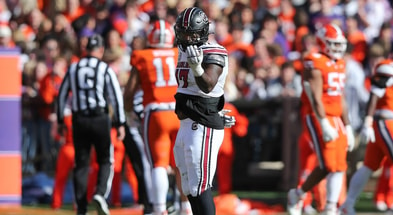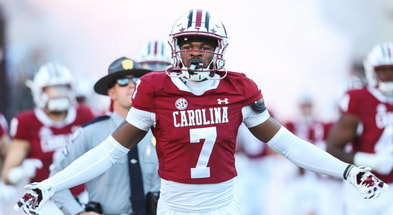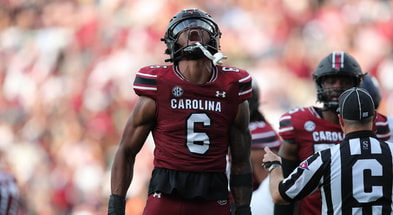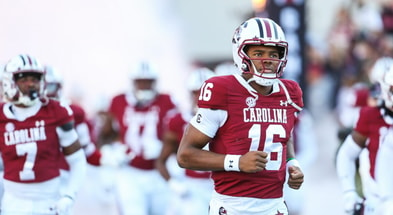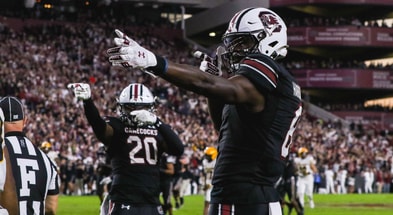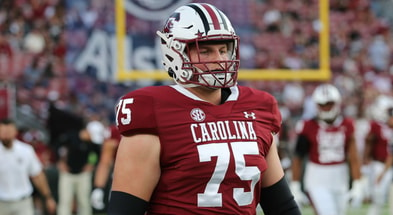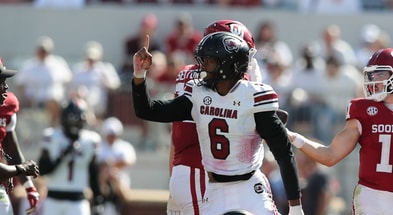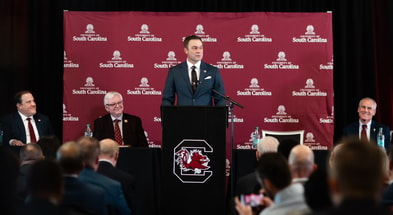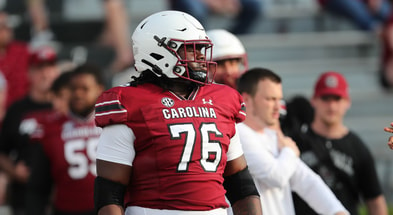Paul Finebaum shares his uncertainties of South Carolina making College Football Playoff

As the college football regular season comes to an end, South Carolina did what it had to do: leave no doubt. At this point, the Gamecocks have done all they can do and now leave their postseason fate in the hands of the College Playoff committee.
With a 17-14 win over No. 12 Clemson on Saturday, No. 15 South Carolina has won six straight games, making it one of the hottest teams in the country. But that leads into the great debate — is it enough? With Selection Day one week away, will the Gamecocks make the 12-team playoff?
There’s no doubt they’ll be in the conversation for one of those spots. The odds are stacked against them, though, with a 21 percent chance to make the playoff as of Sunday.
[SILLY SEASON SALE: Subscribe for $1 for 7 days]
One day after South Carolina’s big win over the Tigers, ESPN analyst and SEC Network host Paul Finebaum shared some of his thoughts on this discussion when he joined ESPN’s Matt Barrie on The Matt Barrie Show.
The main point against putting the Gamecocks in the playoff would be the fact that they have three losses, two of which came against No. 13 Alabama and No. 14 Ole Miss earlier in the year. And this is something Finebaum spoke about.
“I was vacillating as I watch Clemson that South Carolina belongs in. But then you start thinking about South Carolina’s loss, yeah to Alabama. Fluke or not, they still lost,” Finebaum said. “And then what gets me about South Carolina is that just beat down that Ole Miss puts on them. I know it was weeks and weeks ago but it’s hard to square.”
Like it or not, the losses to Alabama and Ole Miss are currently keeping South Carolina from being a solidified playoff team. But specifically, it looks like this race to the finish line could come down to the Gamecocks and Crimson Tide. And as of right now, Alabama is in the lead.
“I know (Alabama is) capable of beating good teams,” Finebaum said. “I would rather put in a flawed team that can beat a good team like Georgia than just put somebody in because they have a win over the number 23 team in the country.”
[On3 App: Get South Carolina push notifications from GamecockCentral]
At the same time, Finebaum contradicted this point by mentioning that “it doesn’t really matter what you did on Labor Day weekend.” This logic could apply to South Carolina’s 27-25 loss to Alabama came on Oct. 12 back in Week 7.
Top 10
- 1
Rick Pitino
New sheriff in Big Ten?
- 2
Ryan Day
Buyout revealed from new contract
- 3
UNC president
Belichick hire fall out
- 4
'I'm 1-0 vs. PETA'
La. Gov. defends LSU live tiger
- 5
2025 CFB odds
Key game point spreads
Get the On3 Top 10 to your inbox every morning
By clicking "Subscribe to Newsletter", I agree to On3's Privacy Notice, Terms, and use of my personal information described therein.
Since that game, the Gamecocks are 6-0 with three wins over current CFP Top 25 teams. Alabama is 4-2 in its last six games with losses to No. 8 Tennessee and Oklahoma.
Both teams will end the regular season at 9-3 overall. But one of the key factors in this debate are common opponents. The Crimson Tide lost to Oklahoma by 21 points and a 6-6 Vanderbilt team in Nashville. South Carolina beat both of those teams by 20-plus points on the road.
“If you’re looking at it in terms of how do you get a great tournament, which is what we’re looking at here, how are you playing?” Finebaum said. “South Carolina’s one of the most consistent teams in the country right now. Is that enough to get you over the fact that they got destroyed at home by one of the other teams who was trying to get in?”
[Get our free newsletter! Don’t rely on search engines and social media for your Gamecock info.]
When the final bracket is revealed, Finebaum admitted he doesn’t have much faith in the committee to get it right.
“Committees tend to look at data points and the easy things that they can sing Kumbaya about. And the way they can sing Kumbaya is by saying, ‘Well, look at Miami. They have wins over three of the top 25,’ even though they’re ones making up the top 25,” he said.
“I think Alabama has four — Missouri is one of Alabama’s wins. South Carolina is one of Alabama’s wins. Georgia is. So, do you weigh the wins versus the losses? Do you look at when it is? And what they will do — I’m convinced — they’ll find some common ground because guess what? They’re a committee.”


